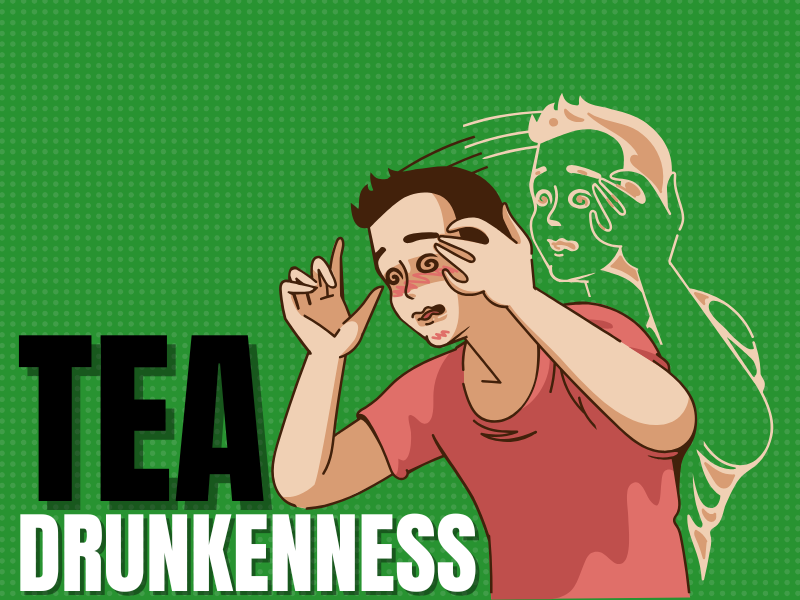
Tea Drunkenness: What It Is, How It Feels, and Easy Ways to Feel Better
Tea drunkenness is a term that describes a state of physical discomfort that can happen when someone drinks too much tea or consumes tea that is unusually strong. This condition is not uncommon, and it occurs due to the effects of certain components in tea, such as caffeine and tea polyphenols, when they are consumed in excessive amounts or under certain circumstances.
1. Causes
- **Drinking too much tea**: One common cause of tea drunkenness is consuming a large quantity of tea in a short period of time. This may lead to an overload of stimulating substances like caffeine and tea polyphenols entering the body. For instance, someone who drinks several cups of strong tea back-to-back without any break is more likely to experience tea drunkenness, as their body may struggle to process these substances quickly.
- **Drinking tea on an empty stomach**: Another major cause is drinking tea without eating any food first. When the stomach is empty, there is no food to help slow down the absorption of tea's active components. As a result, substances like caffeine and fluoride in tea go directly into the bloodstream at a faster rate. This can irritate both the digestive system and the nervous system, significantly increasing the chances of experiencing tea drunkenness. For example, drinking a cup of strong tea first thing in the morning, before eating any breakfast, might make you feel unwell because your body has nothing to buffer the effects of the tea.
2. Symptoms
- **Effects on the nervous system**: Tea drunkenness can interfere with the nervous system, leading to symptoms such as dizziness and tinnitus. Many people describe feeling lightheaded, as though their balance is off or the environment around them is spinning. Tinnitus often accompanies this feeling, causing a persistent buzzing or ringing noise in the ears. In some cases, individuals may also notice their heartbeat speeding up, leading to palpitations. This can result in a sense of unease or restlessness. Additionally, tea drunkenness may cause a feeling of weakness in the arms and legs, as if they have gone limp and lack strength.
- **Effects on the digestive system**: Tea drunkenness can also upset the digestive system. Symptoms might include nausea, a strong urge to vomit, and even actual vomiting in more serious cases. Some people might feel bloated, with a sense of heaviness and discomfort in the abdomen, and might also experience mild abdominal pain. These digestive issues can make the overall discomfort even harder to tolerate.
3. Remedies
- **Changes to diet**: Adjusting what you eat or drink can provide relief from the symptoms of tea drunkenness. Consuming foods that contain sugar often helps because sugar can counteract the effects of the tea's stimulating components. For example, eating something sweet, like candy, chocolate, biscuits, or fruit, can reduce symptoms. Drinking sugary beverages, such as plain water mixed with white or brown sugar, is another simple and effective option. If the digestive discomfort persists, eating small portions of soft, easily digestible foods, such as bread, crackers, or steamed buns, can help soothe an upset stomach. These types of foods are gentle on the digestive system and can relieve the strain caused by tea drunkenness.
- **Getting proper rest**: Resting the body is another important step in recovering from tea drunkenness. Find a quiet and comfortable place to lie down and relax. Allowing the body to rest will give it time to recover and return to a normal state. Staying still and calm for a while can reduce the unpleasant symptoms and help you feel better more quickly.
